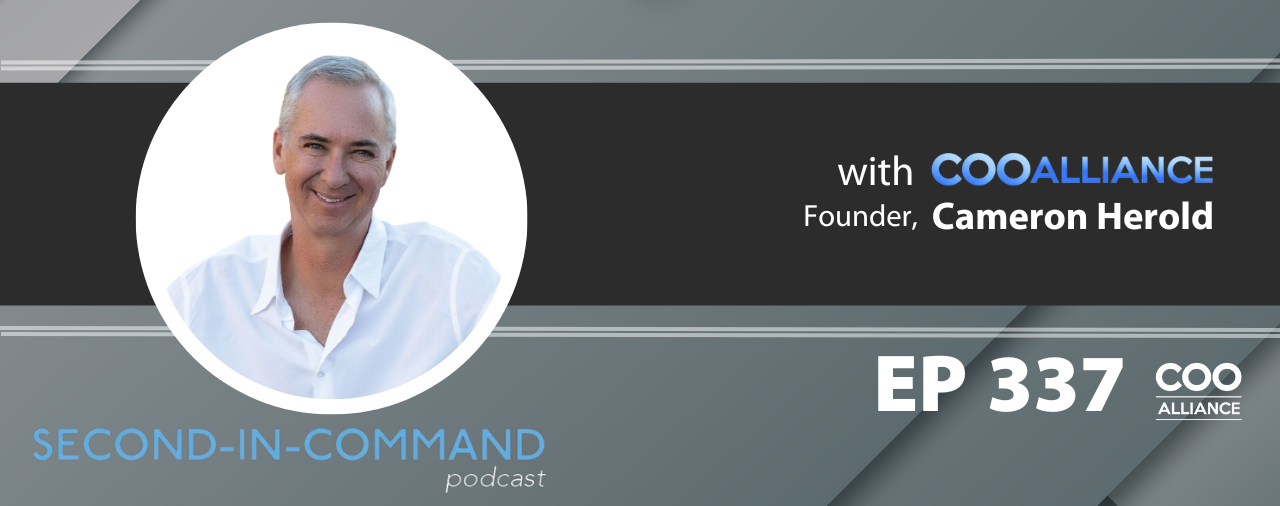Today’s episode of the Second in Command podcast is a little special. It’s an example of one of Cameron’s platinum coaching calls, in which he addresses the dynamics of workplace communication and project initiation, focusing on the interaction between two archetypal roles: a CEO, Nick, and his COO, Lacey. Cameron emphasizes the importance of understanding individual work styles, especially in how different people start projects. He notes that Lacey, in her role, tends to ask numerous questions to grasp the full scope of a project, covering aspects like who, what, when, why, how, budget, and priorities. This approach however, frustrates Nick, who perceives her thorough questioning as argumentative rather than an attempt to understand his vision. Cameron points out that while Nick has been mulling over the project internally and expects Lacey to immediately catch up, she requires detailed information to begin work effectively.
To address such disparities in work styles, he suggests that everyone in leadership positions should complete the Kolbe A profile – a tool that helps in understanding how individuals initiate projects. He presents the differences in Kolbe scores between himself and Lacey as an example, highlighting that these scores reflect their distinct approaches to project initiation and management. Cameron suggests using these various personality profiles at least once a year to foster better understanding and synergy within teams. He elaborates that CEOs, like Nick, often prefer quick summaries and bullet points rather than detailed reports, which contrasts with Lacey’s detail-oriented approach. Cameron also discusses the concept of ‘fact-finder’ in Kolbe profiles, which influences how people like Lacey start projects by gathering extensive information. On the other hand, CEOs often think in approximations and prioritize momentum over precision.
Cameron explores the concept of ‘follow-through,’ which is typically high in CEOs and revolves around establishing systems and processes before embarking on projects. This need for organization can clash with the entrepreneurial spirit of starting immediately and figuring things out along the way. He advocates for the Kolbe A profile not only as a tool for understanding but also as a means to facilitate effective collaboration, akin to relationship counseling. He also touches upon the cyclic nature of marketing and operations in businesses, observing that a focus on marketing leads to operational efforts, which then slow down marketing activities, creating a cycle that can affect business flow.
Enjoy!
In This Episode You’ll Learn:
- How different individuals, like CEOs and COOs, approach project initiation and management, and the need to recognize and respect these differences for effective collaboration.
- Why thorough questioning at the start of a project is crucial for effective execution, despite misunderstandings it may cause with those who prefer a more direct approach.
- The utility of tools like the Kolbe A profile in understanding how different team members initiate projects, and how this can enhance team dynamics and productivity.
- Strategies for tailoring communication to suit different personalities within a team, such as providing concise summaries for quick decision-makers and detailed reports for those who prefer in-depth information.
- The significance of ‘Follow-Through’ in high-ranking roles, which involves setting up systems and processes before starting projects, and how it contrasts with an entrepreneurial mindset.
- The cyclical nature of marketing and operations in businesses, and the importance of continuous marketing efforts to maintain a steady flow of work and revenue.
- And much more…
Resources:
Connect with Cameron: Website | LinkedIn
Get Cameron’s latest book “Second in Command: Unleash the Power of your COO”
Get Cameron’s online course – Invest In Your Leaders





